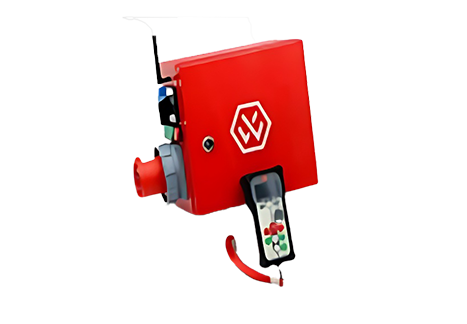
Introduction
Drilling Motor Controllers are an essential component in the oil and gas industry, used to control the operation of drilling motors in order to optimize drilling performance and ensure the safety of drilling operations. There are several different types of drilling motor controllers available on the market, each with its own unique features and benefits. In this article, we will provide an in-depth comparison of three types of drilling motor controllers: mechanical, electric, and hydraulic.
Mechanical Drilling Motor Controllers
Mechanical drilling motor controllers are the simplest and most traditional type of drilling motor controller. They typically consist of mechanical components such as gears, clutches, and brakes that are used to control the speed and direction of the drilling motor. Mechanical controllers are generally reliable and easy to operate, but they are limited in their ability to provide precise control over the drilling motor.
One of the main advantages of mechanical drilling motor controllers is their simplicity and durability. They are often used in rugged environments where electronic or Hydraulic systems may be less reliable. However, mechanical controllers are limited in their ability to provide real-time feedback and control over the drilling motor, which can result in less efficient drilling operations.
Electric Drilling Motor Controllers
Electric drilling motor controllers are more advanced than mechanical controllers and utilize electronic components such as sensors, actuators, and controllers to provide precise control over the drilling motor. Electric controllers can adjust the speed, torque, and direction of the drilling motor in real-time, allowing for more efficient and accurate drilling operations.
One of the main advantages of electric drilling motor controllers is their ability to provide precise control over the drilling motor. This can result in faster drilling speeds, increased drilling efficiency, and reduced wear and tear on drilling equipment. Electric controllers also typically feature advanced safety features such as overload protection and emergency stop functions.
However, electric drilling motor controllers are more complex and expensive than mechanical controllers, and they may require more maintenance and training to operate effectively. Additionally, electric controllers may be more vulnerable to electrical interference or power outages, which can pose a risk to drilling operations.
Hydraulic Drilling Motor Controllers
Hydraulic drilling motor controllers use hydraulic fluid to control the operation of the drilling motor. Hydraulic controllers are capable of providing precise control over the speed, torque, and direction of the drilling motor, making them ideal for high-performance drilling operations. Hydraulic controllers are also known for their high power density and efficiency, making them well-suited for heavy-duty drilling applications.
One of the main advantages of hydraulic drilling motor controllers is their high power density and efficiency. Hydraulic systems can generate high levels of torque and power, allowing for faster drilling speeds and increased drilling efficiency. Hydraulic controllers are also known for their ruggedness and durability, making them well-suited for harsh operating environments.
However, hydraulic drilling motor controllers can be complex and expensive to install and maintain. They also require a constant supply of hydraulic fluid, which can add to operating costs. Additionally, hydraulic systems may be more prone to leaks and other maintenance issues compared to mechanical or electric controllers.
Conclusion
In conclusion, there are several different types of drilling motor controllers available, each with its own unique features and benefits. Mechanical controllers are simple and reliable but may lack the precision and efficiency of electric or hydraulic controllers. Electric controllers offer precise control and advanced safety features, but they are more complex and expensive. Hydraulic controllers provide high power density and efficiency, but they can be costly to install and maintain. When choosing a drilling motor controller, it is important to consider the specific requirements of the drilling operation and weigh the advantages and disadvantages of each type of controller.
PRODUCT
No. 69, Modern Enterprise Center, Zhangbali Road, High tech Zone, Yanta District, Xi'an City
186-9186-8655
baishidong@advance-xa.com
Copyright
Comment
(0)